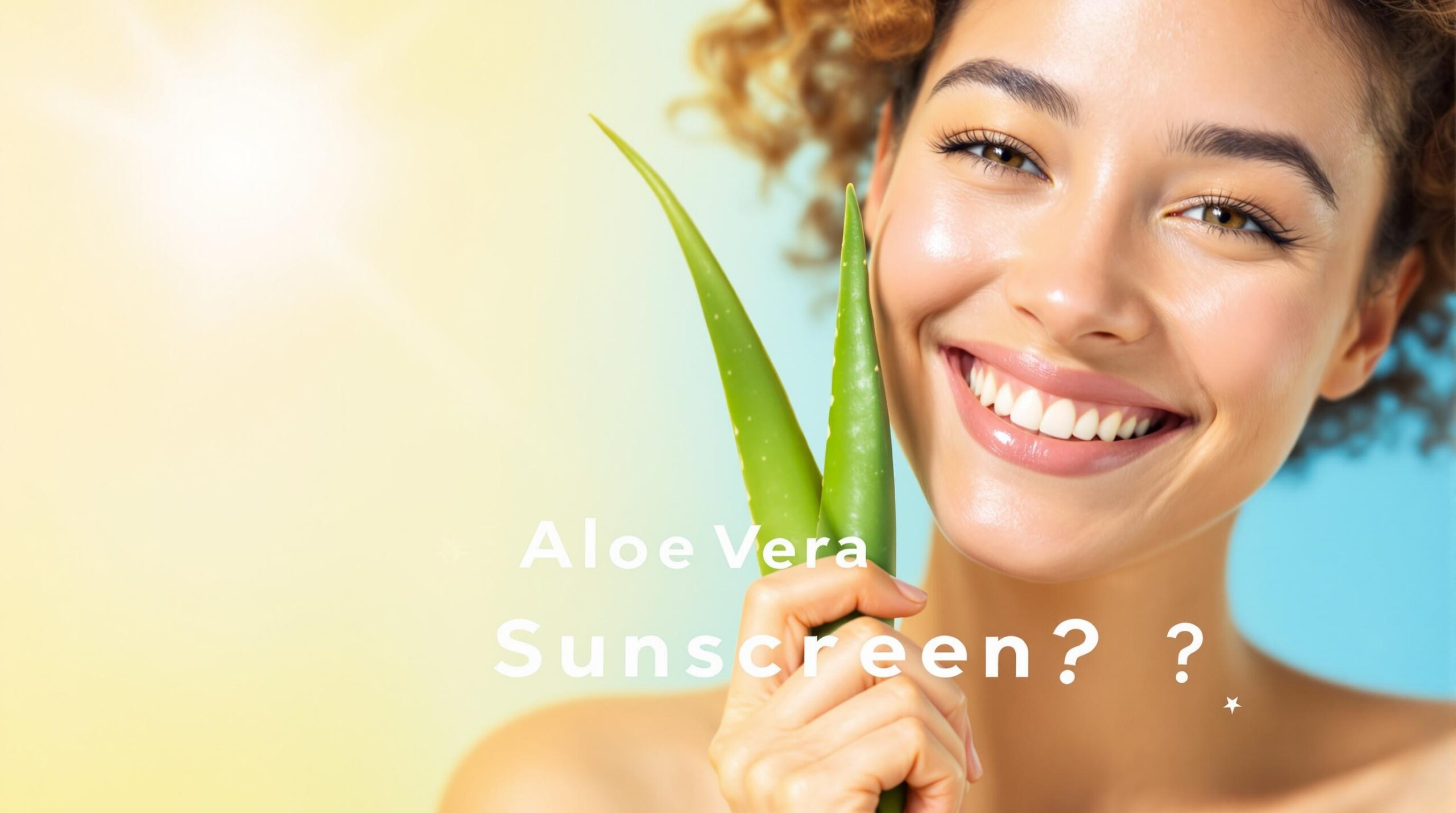
Sun protection is essential for maintaining healthy skin. The sun emits harmful UV rays that can cause skin damage, premature aging, and skin cancer. According to the Skin Cancer Foundation, one in five Americans will develop skin cancer by the age of 70. Broad-spectrum sunscreens help protect the skin from these dangerous UV rays, significantly reducing the risk of developing skin problems. Regular use of broad-spectrum sunscreen can lower the risk of skin cancer by 40%.
UV rays have two main types: UVA and UVB. UVA rays penetrate the skin deeply, leading to aging signs, while UVB rays primarily cause sunburn. Both types are harmful, making it crucial to use a sunscreen that protects against both. In addition to cancer risks, excessive sun exposure can result in skin conditions like dark spots and wrinkles. Therefore, safeguarding your skin from the sun is not just a cosmetic concern but a serious health priority. Every ray counts!
Aloe Vera Unveiled: Nature’s Healing Marvel
Aloe vera is a succulent plant renowned for its healing properties. It has been used for centuries in various cultures for its medicinal benefits. This plant is rich in vitamins, antioxidants, and minerals that support skin health. Aloe vera contains enzymes that can aid in repairing damaged skin, making it a popular remedy for sunburn and other skin irritations.
In addition to its soothing properties, aloe vera is also an excellent moisturizer. It hydrates the skin without leaving a greasy residue, making it a favorite ingredient in many skincare products. Furthermore, its anti-inflammatory qualities help reduce redness and irritation. Aloe vera is not just a plant; it’s a powerhouse for your skin, providing nourishment and protection.
The Quest: Can Aloe Vera Gel Replace Sunscreen?
The question remains, can aloe vera gel effectively serve as a sunscreen? Aloe vera does not have a high SPF rating by itself, meaning it may not offer sufficient protection against UV rays. While it can soothe irritated skin and provide hydration, it lacks the broad-spectrum protection that conventional sunscreens offer.
However, aloe vera can still play a significant role in sun protection when combined with traditional sunscreens. It helps keep the skin moisturized and can alleviate the discomfort of sunburn. This makes aloe vera a valuable addition to any sun protection routine, but it should not be relied upon solely for stopping UV damage.
Pro Tips: Using Aloe Vera for Sun Protection
Incorporate aloe vera gel into your skincare routine for optimal protection against the sun. Start by applying a broad-spectrum sunscreen with a minimum SPF of 30 as your primary defense. After applying sunscreen, you can use aloe vera gel to enhance hydration and soothe the skin. This two-fold approach offers both protection and nourishment.
Additionally, consider using aloe vera gel right after sun exposure. It can help calm and cool sunburned skin. Pair it with other ingredients that offer added UV protection, such as coconut oil or shea butter, for an effective blend. Remember to reapply sunscreen every two hours, especially after swimming or sweating, to maintain protection while using aloe vera in your routine.
Step-by-Step: Applying Aloe Vera Gel Effectively
To apply aloe vera gel correctly, follow these simple steps. First, cleanse your skin thoroughly to remove any impurities. Next, apply a generous amount of broad-spectrum sunscreen to all exposed areas before heading outdoors. After this step, take some aloe vera gel and gently massage it onto your skin, focusing on areas that feel dry or irritated. Make sure to reapply every couple of hours, especially after sweating or swimming.
These steps ensure that your skin remains protected and hydrated simultaneously. It’s an effective method that combines the strengths of both aloe vera and sunscreen for maximum benefits.
What the Experts Say: Dermatologists’ Views on Aloe
Many dermatologists acknowledge the benefits of aloe vera, emphasizing that it can complement traditional sunscreen rather than replace it. Experts agree that aloe vera has skin-soothing effects, but its sun protection abilities are limited. They recommend using aloe vera gel as a post-sun treatment to help with skin recovery after sun exposure.
Additionally, some studies suggest that specific compounds in aloe vera may have potential protective benefits against UV rays. However, these effects are not strong enough to serve as a standalone sunscreen. Expert consensus favors a combination approach—using both sunscreen and aloe vera for ultimate skin safety and recovery.
The Risks: Why Aloe Alone Might Not Be Enough
Relying solely on aloe vera gel for sun protection can lead to significant risks. Many people mistakenly believe that because aloe vera has soothing and moisturizing properties, it can provide adequate sun protection. However, the SPF in aloe vera is minimal and does not offer the full coverage needed to block harmful UV rays. This misconception can lead to severe skin problems, including burns and long-term damage.
Additionally, without proper protection against UV rays, you may increase your risk of skin cancer. It’s essential to understand that while aloe vera is beneficial for skin health, it should be used in conjunction with effective sunscreen for reliable sun protection.
Recommended Products: Aloe Infused Sunscreens to Try
Here’s a list of some of the best aloe vera-infused sunscreens available:
| Product Name | SPF | Features |
|---|---|---|
| SunBum SPF 50 | 50 | Water-resistant, paraben-free |
| Aloe Gator Sunscreen SPF 40 | 40 | Non-greasy, enriched with aloe |
| Burt’s Bees Aloe & Coconut Oil Sunscreen | 30 | Sustainable ingredients, moisturizing formula |
These products combine the benefits of aloe vera with effective SPF, ensuring proper skin protection while keeping your skin healthy.
Final Verdict: Should You Include Aloe Vera in Your Routine?
In conclusion, aloe vera can complement your sun protection regimen but should not replace conventional sunscreen. Its soothing and moisturizing properties are beneficial and can enhance your overall skincare routine. However, always prioritize using a broad-spectrum sunscreen to effectively protect against UV damage. Remember, the best protection combines aloe vera benefits with reliable sunscreen to safeguard your skin from harmful rays.







